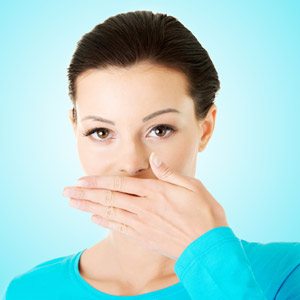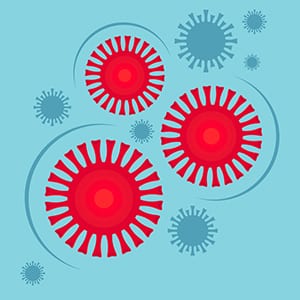Bad breath, or halitosis, is an unpleasant and often embarrassing condition that be caused by poor dental hygiene habits and may be a sign of dental and general health problems. However, the condition can be exacerbated by the foods you may eat and your lifestyle habits. In most cases, your dentist is your best ally in your fight against bad breath. So visit your dental office regularly, at least every six months, or as soon as you discover that you have a bad breath problem. Valentine’s Day is right around the corner and while maintaining dental health should be practiced regularly, people who want to have a date this Valentine’s Day holiday may want to step up their dental hygiene to avoid having bad breath, which is a sure way to spend that evening alone. Many a first kiss was cut short by bad breath, or if the other person had something stuck in their teeth. Although many associate bad breath with eating garlic and spicy foods, smoking cigarettes, or drinking alcohol, poor dental care or dental health may also contribute. Let’s face it: if our dental hygiene and health are less than optimal, not many people are going to want to kiss us. So brush and floss your teeth and come by our office for regular cleanings. River Dentistry will do all we can do to ensure that your “kissability” remains constant throughout the year.
How Poor Dental Hygiene May Cause Bad Breath?
If you don’t brush and floss teeth daily, food particles remain in your mouth, promoting bacterial growth between teeth, around the gums, and on the tongue. This causes bad breath. Additionally, odor-causing bacteria and food particles can cause bad breath if dentures are not properly cleaned.
What Health Problems Are Associated With Bad Breath?
Persistent bad breath or a bad taste in your mouth may be a warning sign of gum (or periodontal) disease. Gum disease is caused by buildup of plaque on teeth. Bacteria can produce toxins, which irritate soft tissues. If gum disease goes untreated, it can damage the gums and jawbone. Other possible causes of bad breath include poorly fitting dental appliances, yeast infection of the mouth, and tooth decay. Many other general health problems may cause bad breath, including respiratory tract infections, pneumonia, bronchitis, chronic sinus infections, postnasal drip, diabetes, chronic acid reflux, and liver or kidney problems.


How Does Food Affect Bad Breath?
Any food you eat starts being digested and broken down right in your mouth. As foods are digested and absorbed into the bloodstream, they are eventually carried to your lungs and may taint your breath. If you eat foods with strong odor, such as curry, garlic, or onions, brushing and flossing or mouthwash may cover up the odor temporarily. It will not go away completely until digestion process is complete.
How Lifestyle Habits Affect Bad Breath?
Smoking or chewing tobacco products also can cause bad breath, stain teeth, reduce your ability to taste foods, and irritate your gums.
What Can You Do about Bad Breath?
Maintain good oral hygiene. Brush twice a day with fluoride toothpaste to remove food debris and plaque. Brush teeth after you eat (keep a toothbrush at work or school to brush after lunch). Don’t forget to brush the tongue, too. Replace your toothbrush every 2 to 3 months or after an illness. Use floss or an interdental cleaner to remove food particles and plaque between teeth once a day. Dentures should be removed at night and cleaned thoroughly before being placed back in your mouth the next morning. Stop smoking and chewing tobacco products. Ask your dentist for tips on kicking the habit. Drink lots of water. This will keep your mouth moist. Chewing sugarless gum can also stimulate production of saliva, which helps wash away food particles and bacteria. Gums containing xylitol are best.
How River Dentistry Can Help?
In most cases, your dentist is your best ally against bad breath. Visit our convenient downtown dental office regularly or at least twice a year. One of our dentists will conduct an oral exam and professional teeth cleaning and will be able to detect and treat tooth decay, gum disease, dry mouth, or other problems that may cause mouth odor. If the dentist determines that your mouth is healthy and the odor is not of oral origin, you may be referred to your family doctor or a specialist to determine the odor source and best treatment plan. Don’t put up with this unpleasant and potentially embarrassing problem. Make your River Dentistry appointment today!











